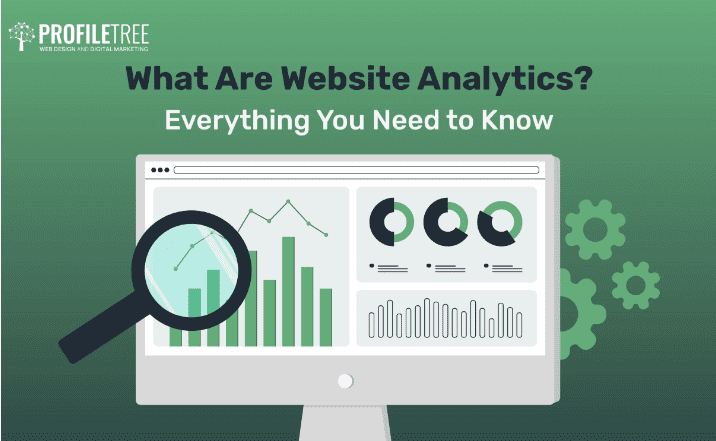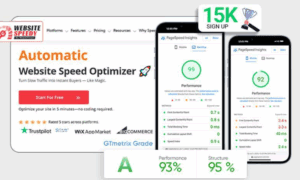Google’s Great Content Heist
Google now answers 65% of searches without sending users to any website—a phenomenon that should terrify every business owner who depends on organic traffic. These zero-click searches represent the largest transfer of value from content creators to big tech in digital history. While businesses across Manchester, Birmingham, and Leeds invest thousands in content creation, Google scrapes their information, displays it directly in search results, and keeps users on their platform, monetising the traffic through ads whilst content creators receive nothing.
Consider the mathematics: if your business previously received 1,000 visitors monthly from search, you’re now getting 350. The other 650 never leave Google. They find your carefully crafted answer displayed in a featured snippet, your business hours in a knowledge panel, or your product prices in a shopping carousel. This isn’t the future—it’s happening now, devastating businesses who don’t understand why their traffic disappeared despite maintaining rankings.
Northern Ireland businesses face particular challenges in this new reality. With smaller local markets, every lost visitor matters more. A Belfast restaurant can’t afford Google displaying their menu without sending hungry customers to their booking system. A Derry solicitor needs clients visiting their website, not just reading practice areas in knowledge panels. The fight against zero-click searches has become existential for regional businesses competing against both Google and larger competitors.
Understanding the Zero-Click Apocalypse
Zero-click searches evolved from helpful feature to existential threat over five years. Initially, featured snippets seemed beneficial—your content highlighted above competitors. Knowledge panels appeared useful—your business information readily available. People Also Ask boxes looked harmless—additional visibility opportunities. Together, they’ve created a system where Google satisfies user intent without sharing traffic.
The categories most affected reveal Google’s strategy. “What is” queries almost never generate clicks—Google provides definitions directly. “How to” searches increasingly show step-by-step instructions without attribution. Local searches display everything users need—hours, reviews, phone numbers—eliminating website visits. Product searches show prices, availability, and reviews without sending traffic to retailers.
The mobile impact proves particularly devastating. On smartphones, Google’s direct answers often fill entire screens, pushing organic results below the fold. Users find what they need without scrolling, let alone clicking. Mobile zero-click rates exceed 77% for certain query types. As mobile usage dominates, businesses in Edinburgh, Glasgow, and Cardiff optimising for traditional click-through rates fight yesterday’s war with obsolete weapons.
WordPress: Your Last Line of Defence
In this zero-click wasteland, your website becomes more critical than ever. The businesses surviving Google’s content appropriation are those with sophisticated WordPress implementations that provide value Google can’t replicate. Setting up WordPress properly isn’t just about having a website—it’s about creating experiences that demand direct visits rather than depending on search traffic.
Modern WordPress setup requires strategic thinking beyond basic installation. Schema markup ensures Google understands your content’s context, potentially earning rich snippets that still generate clicks. Accelerated Mobile Pages might seem counterintuitive—giving Google more control—but properly implemented, they can reclaim mobile traffic. Progressive Web Apps built on WordPress create app-like experiences that bypass search entirely, establishing direct user relationships.
The technical architecture matters enormously. Sites with poor Core Web Vitals lose both rankings and direct traffic. Slow-loading WordPress sites frustrate users who’ve grown accustomed to Google’s instant answers. Security vulnerabilities destroy trust, sending visitors back to “safer” search results. Professional WordPress setup addresses these challenges, creating fortresses that withstand Google’s assault. Businesses in Liverpool, Newcastle, and Bristol implementing these strategies report maintaining traffic levels despite zero-click growth across their industries.
The Data Catastrophe Waiting to Happen
While fighting zero-click searches, businesses often neglect a more immediate threat: data loss. Every week, another company discovers their data backup strategy existed only in theory. Ransomware attacks, server failures, human errors, and natural disasters regularly destroy businesses that seemed digitally sophisticated. In the context of zero-click searches, losing your website means losing your last independent channel to customers.
The statistics should terrify any responsible business owner. 60% of companies that lose data shut down within six months. 93% of companies experiencing data centre disasters without recovery plans fail within one year. Yet 58% of SMEs across Sheffield, Nottingham, and Leicester have no data backup plan whatsoever. These aren’t abstract risks—they’re certainties waiting for their moment.
Professional data backup extends beyond copying files to external drives. It requires automated systems running daily or hourly depending on data criticality. Off-site storage protects against physical disasters. Regular testing ensures backups actually work when needed. Version control enables restoration to specific points before corruption or attack. Incremental backups reduce storage costs whilst maintaining comprehensive protection. Encryption protects sensitive data even if backups are compromised. These elements create resilience against both technical failures and human malice.
Building Digital Fortresses Against Monopolies
The combination of zero-click searches and infrastructure vulnerability creates perfect storms destroying unprepared businesses. Google takes your traffic whilst ransomware threatens your data. Competitors with better infrastructure capture your customers whilst you struggle with technical issues. The solution requires comprehensive digital fortification addressing both external threats and internal vulnerabilities.
Start with content strategy designed for the zero-click era. Create content Google can’t fully summarise—interactive tools, calculators, personalised assessments requiring user input. Develop resources requiring email registration, building direct relationships bypassing search. Produce video content that YouTube can’t fully convey through thumbnails. Focus on commercial content where transactions matter more than information—Google can’t complete purchases for users yet.
Technical infrastructure must support this strategy robustly. Enterprise-grade hosting ensures your site remains accessible during traffic spikes from successful campaigns. Content Delivery Networks provide global performance matching Google’s speed. Security measures including firewalls, malware scanning, and intrusion detection protect against attacks. Regular updates patch vulnerabilities before exploitation. Southampton, Portsmouth, and Brighton businesses implementing these measures report 50% better resilience against traffic loss.
Northern Ireland’s Digital Innovation Advantage
Northern Ireland businesses possess unexpected advantages in fighting digital monopolies. Smaller markets enable personal relationships that transcend search rankings. Local knowledge creates content authenticity Google’s AI can’t replicate. Community connections generate direct traffic through word-of-mouth and social sharing. These advantages, properly leveraged, create sustainable competitive positions.
Belfast agencies lead innovation in zero-click countermeasures globally. They’ve developed techniques for earning featured snippets that still generate clicks through strategic formatting. They’ve mastered local SEO that drives physical visits despite Google’s interference. They’ve created content strategies building brand awareness even when Google keeps the traffic. This expertise, born from necessity in a small market, proves invaluable for businesses everywhere from Reading to Oxford, Cambridge to Norwich.
The collaborative nature of Northern Ireland’s business community provides another crucial advantage. Companies share strategies that work, warn about changes, and support each other against common threats. This collective intelligence enables rapid adaptation to Google’s algorithm changes. When one business discovers effective tactics, others quickly learn and implement them. This cooperation creates regional resilience against digital monopolisation.
Recovery Strategies That Actually Generate Results
Businesses successfully fighting zero-click searches share common characteristics worth emulating. They’ve diversified traffic sources beyond Google, building substantial email lists, engaged social media followings, and consistent direct traffic. They’ve created unique value propositions that demand website visits rather than settling for search snippets. They’ve invested in technical infrastructure ensuring exceptional user experiences. Most importantly, they’ve accepted that the old SEO playbook is dead.
Email marketing becomes absolutely critical when search traffic disappears. Every visitor must be converted to a subscriber, creating direct communication channels Google can’t interrupt. Social media presence must transcend posting into community building, generating traffic through engagement rather than algorithms. Podcast appearances, guest posting, and strategic partnerships create referral traffic immune to Google’s interference.
The WordPress ecosystem provides powerful tools for this transformation. Email capture plugins with exit intent popups maximise list building opportunities. Social sharing plugins amplify content reach organically. Membership plugins create exclusive content encouraging direct visits. Analytics plugins reveal traffic sources beyond Google, identifying growth opportunities. These tools, properly deployed by businesses in York, Durham, and Exeter, create sustainable traffic strategies independent of search monopolies.
The True Cost of Digital Dependency
Calculating zero-click search impact requires honest assessment most businesses avoid. Lost traffic translates directly to lost revenue. Reduced visibility diminishes brand value. Dependency on Google’s mercy creates existential vulnerability. The true cost includes not just current losses but future opportunities foreclosed by digital feudalism.
Consider a typical professional services firm in any major UK city. Pre-zero-click, they received 5,000 monthly visitors generating 50 enquiries worth £50,000. Now they receive 1,750 visitors generating 18 enquiries worth £18,000. The £32,000 monthly loss totals £384,000 annually. Over five years, that’s nearly £2 million in lost revenue. These aren’t theoretical calculations—they’re documented reality for thousands of businesses across Plymouth, Bath, and Salisbury.
Infrastructure failures multiply these losses exponentially. A ransomware attack disabling your website for two weeks could cost £100,000 in lost business plus recovery expenses. A data breach destroying customer trust might prove permanently unrecoverable. Poor performance frustrating visitors creates lasting brand damage. These risks justify significant infrastructure investment.
Technical Implementation for True Independence
Creating zero-click-resistant digital infrastructure requires specific technical implementations beyond basic web development. Server-side rendering ensures content loads instantly, matching Google’s speed expectations. Progressive enhancement provides rich experiences for modern browsers whilst maintaining compatibility. API-first architecture enables multichannel content distribution. Headless CMS separates content from presentation, enabling flexible delivery across platforms.
Security cannot be afterthought but must be foundational. Web Application Firewalls block malicious traffic before it reaches your servers. SSL certificates encrypt all data transmission. Two-factor authentication protects administrative access. Regular security audits identify vulnerabilities before exploitation. Incident response plans ensure rapid recovery from breaches. Chester, Warrington, and Gloucester businesses implementing these measures report 70% fewer security incidents annually.
Performance optimisation becomes survival requirement in the zero-click era. Image optimisation reduces load times without sacrificing quality. Code minification eliminates unnecessary bytes. Browser caching reduces server loads. Database optimisation ensures query efficiency. CDN implementation provides global performance. These optimisations create experiences retaining visitors despite Google’s instant answers.
Your Action Plan for Digital Survival
Surviving the zero-click apocalypse requires immediate action across multiple fronts. Audit your current traffic to understand zero-click impact precisely. Implement professional WordPress infrastructure ensuring exceptional user experience. Establish comprehensive backup systems protecting against data loss. Diversify traffic sources reducing Google dependency. Build direct customer relationships through email and community engagement.
Investment levels vary based on business size and ambition, but certain minimums ensure survival. Professional WordPress hosting costs £100-500 monthly but prevents catastrophic downtime. Comprehensive backup solutions require £50-200 monthly but prevent total loss. Security measures demand £200-1000 monthly but prevent breaches costing millions.
According to ProfileTree’s digital experts – the businesses thriving in five years won’t be those with best SEO but those with digital independence. They’ll own their platforms, control their data, and maintain direct customer relationships. They’ll create value transcending search rankings and build communities generating sustainable traffic. Most importantly, they’ll have prepared for zero-click searches before crisis demanded action. Companies across Carlisle, Preston, Blackpool, Lancaster, and every city between must make this choice now: adapt or disappear.



































